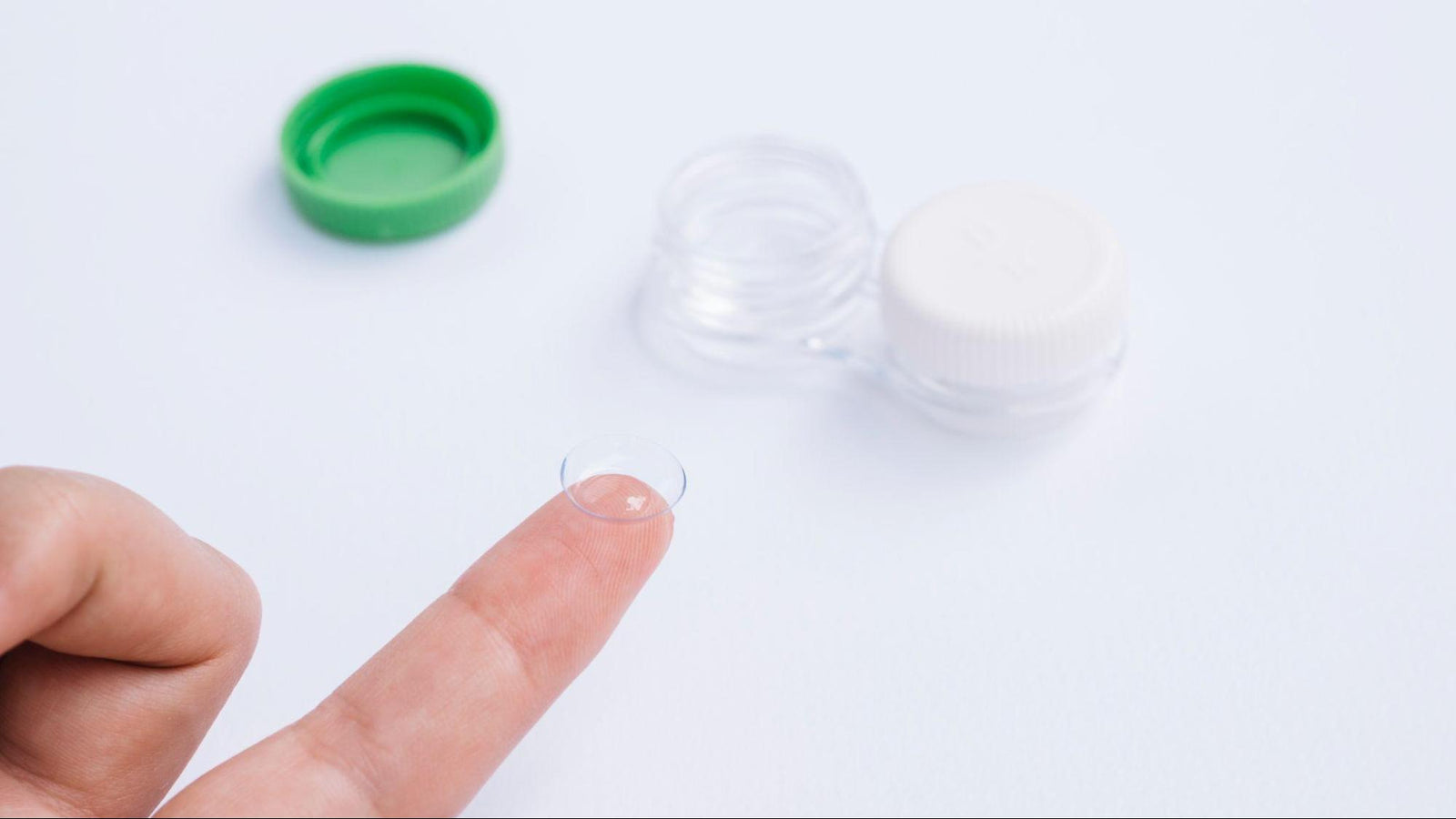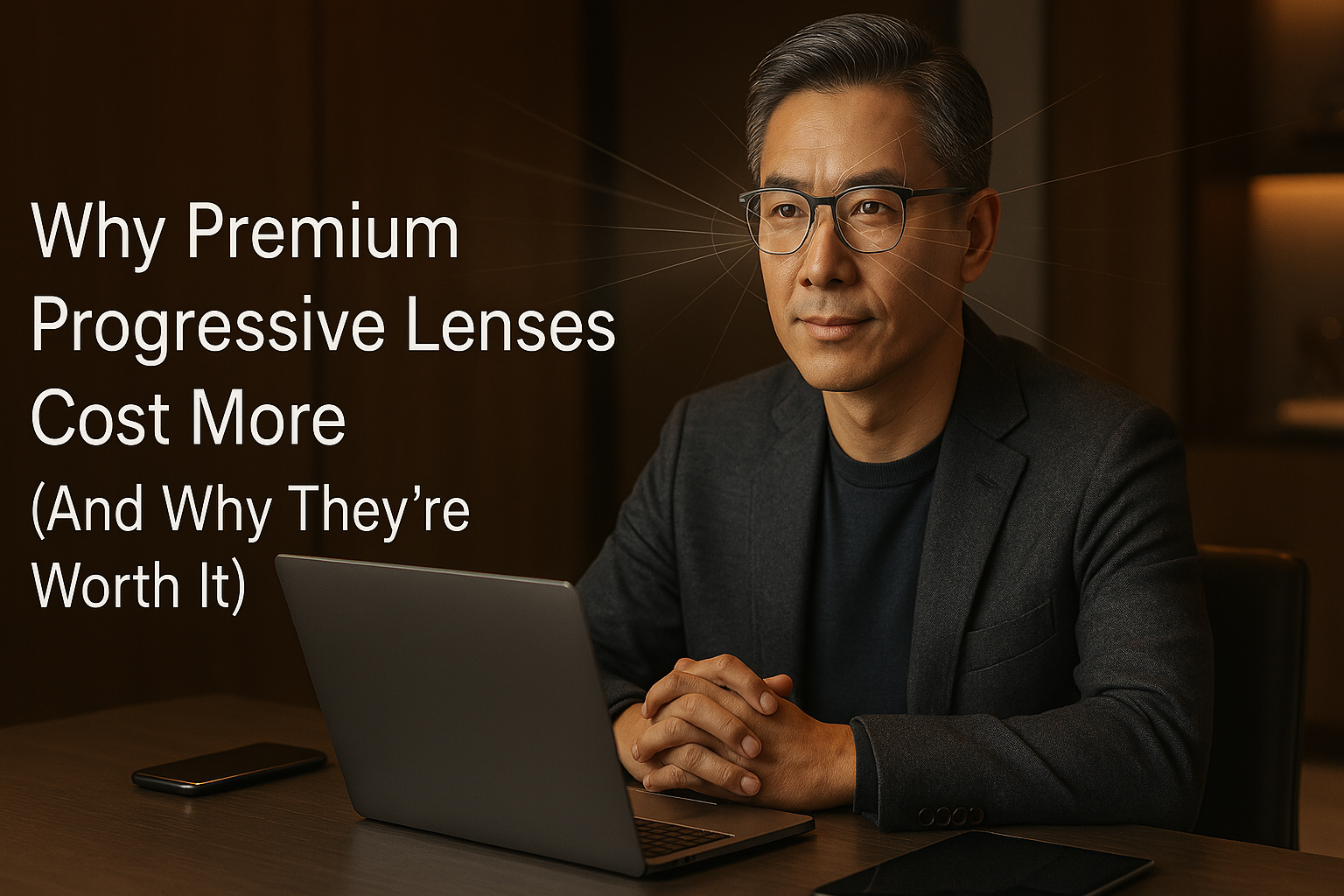Contact lenses have become a widely used and convenient option to address vision issues, particularly myopia, which is prevalent among Singaporeans.
With various types of contact lenses available, each offering unique advantages, they provide a flexible alternative to traditional eyeglasses. However, to fully benefit from wearing them, it's essential to understand the different types and practise proper care to maintain both your lenses and eye health.
Types of Contact Lenses
These are some of the contact lenses that are typically available in eyecare clinics in Singapore:
1. Soft Contact Lenses
Soft contact lenses are made of flexible materials that enable oxygen to pass through, making them comfortable for long wear. There are three types of soft contact lenses:
-
Daily disposables: Worn for a single day and then discarded.
-
Bi-weekly disposables: Used for up to two weeks with daily cleaning.
-
Monthly disposables: Designed for up to 30 days of wear with proper maintenance.
Soft lenses are generally easy for new wearers to adapt to, with various options to suit different vision needs. However, they are less durable than rigid lenses and can potentially tear easily if not handled with care.
2. Rigid Gas Permeable (RGP) Lenses
RGP lenses are made from materials that allow oxygen to reach the eye, promoting healthier eye conditions during wear. Although they may take longer to get used to, RGP lenses typically have optical clarity and can be beneficial for individuals with certain vision issues like high astigmatism or keratoconus.
Another advantage of these lenses is that they are less likely to cause dry eye symptoms and are resistant to protein deposits. Though not as focused on comfort as soft lenses, RGP lenses potentially last longer and are designed to provide optimal visual clarity.
3. Speciality Lenses
Speciality lenses cater to specific vision needs or aesthetic preferences. These include:
-
Toric lenses for astigmatism: Designed to correct the uneven curvature of the eye, these lenses offer different powers in various parts of the lens to address astigmatism.
-
Multifocal lenses for presbyopia: Ideal for those with presbyopia, these lenses provide clear vision for both near and distant objects, eliminating the need for reading glasses.
-
Coloured contact lenses: These lenses are used for cosmetic purposes and allow you to change your eye colour. However, they should still be fitted by an eye care professional to ensure safety and comfort.
Benefits of Contact Lenses
Wearing contact lenses comes with several advantages, making them an appealing choice for many.
Supports Field of Vision
Contact lenses provide an unobstructed and wider field of vision as they move with your eyes, offering a natural visual experience, especially beneficial for activities that require peripheral vision, like driving or sports. This is because they sit directly on your eye, eliminating the blind spots that could potentially be created with specific types of frames.
Convenience for Active Lifestyles
Contact lenses can be beneficial for sports and physical activities. They don't fog up in cold weather or when wearing a mask, slide down your nose, or fall off during intense movement. This makes them a go-to option for active individuals or those who participate in sports.
Cosmetic Benefits
Another appeal of contact lenses is that they offer the freedom to show off one’s facial features without obstruction. They also allow you to change your eye colour for a subtle or bold enhancement.
Improved Comfort
Modern contact lenses are designed with materials that promote comfort throughout the day. Many are made with breathable materials that allow oxygen to reach the eye, minimising the likelihood of dryness and irritation.
Versatility
Contact lenses can accommodate a range of vision needs. Whether you have nearsightedness, farsightedness, astigmatism, or presbyopia, there's a contact lens option available to address your specific vision problem.
Proper Care and Maintenance
By maintaining a strict hygiene routine and adhering to recommended usage guidelines, you can prolong the life of your lenses and keep your eyes healthy. Here are some tips on how to clean, wear, and store your contact lenses:
Daily Cleaning and Storage
One of the most important aspects of contact lens care is proper cleaning and storage. After removing your lenses, it’s essential to clean them with an appropriate contact lens solution — never use tap water, saliva, or any homemade solutions.
After cleaning, store your contact lenses in a clean, sterile lens case filled with fresh solution every day. Avoid reusing the solution, as the old solution can become a breeding ground for bacteria. Moreover, make it a habit to replace your lens case at least once every three months to reduce the risk of contamination.
Follow Replacement Schedules
Each type of contact lens — whether daily, bi-weekly, or monthly — has a specific replacement schedule that must be strictly followed. When you wear your contact lenses beyond their recommended usage period, it can lead to discomfort, blurry vision, and an increased risk of infection.
Safe Handling
Proper hygiene when handling your contact lenses is essential to avoid contamination and irritation. As such, always wash your hands with soap and water before touching your lenses, and dry them thoroughly with a lint-free towel. Dirty or wet hands can transfer bacteria to the lenses, increasing the risk of eye infections.
Additionally, be mindful of where you handle your lenses. Avoid handling them in environments that may expose them to contaminants, such as bathrooms or kitchens where water and steam are present.
Common Mistakes to Avoid
Even experienced contact lens wearers can make mistakes that could compromise their eye health.
Some of the most common errors include:
-
Overwearing lenses: Wearing your lenses longer than the recommended time can decrease the oxygen supply to your eyes, leading to dryness and discomfort. Therefore, you should follow your optometrist’s advice on how long you can wear your contacts.
-
Sleeping with contacts (unless specifically prescribed): Sleeping with contact lenses on, even those approved for extended wear, can increase your risk of serious eye infections. Make sure to consult your eye care professional for guidance on overnight wear.
-
Swimming or showering with lenses: Water can trap bacteria against your eye, increasing the risk of infection. If you must swim with lenses, use watertight goggles.
-
Using expired solutions or reusing old solutions: Expired solutions lose their effectiveness and can harbour bacteria.
-
Ignoring discomfort: If your lenses cause discomfort, redness, or excessive tearing, don’t ignore these signs. Remove the lenses immediately and consult your optometrist to rule out any infections or other eye conditions.

Choosing the Right Contact Lenses
When choosing contact lenses to wear, it’s important to find ones that fit your lifestyle and vision needs.
-
Consult an optometrist: Your optometrist will recommend the appropriate option based on your vision requirements, whether you need contact lenses for presbyopia, myopia, or astigmatism.
-
Personalised recommendations: Depending on your lifestyle — whether you’re constantly on the go or spend long hours in front of screens — your optometrist can suggest lenses that suit your day-to-day activities. For example, if you’re looking for Ortho-K lenses to manage myopia, your optometrist will guide you on how these lenses work.
-
Eye screening in Singapore: Regular eye screenings are important to check for any changes in your vision. These screenings are not just for those experiencing vision difficulties but for everyone, regardless of age or current eye health. Early detection allows for timely care and management, mitigating the risk of vision loss. Clinics like EyeCare People in Singapore offer comprehensive eye screenings and expert guidance to help you find suitable options to help with your vision.
Find the Right Contact Lenses for You
Whether you’re considering soft contact lenses for myopia or exploring speciality options like Ortho-K lenses, choosing the right type of lenses is crucial to maintaining both your vision and eye health. That's why it's essential to consult an optometrist to receive professional advice on the appropriate lenses for your eyes, ensuring optimal comfort and performance.
This is where professionals at Eyecare People can help. Our optometrists can evaluate your eye’s condition and guide you through the process of finding contact lenses that suit your needs. Whether you're a first-time wearer or looking to switch lenses, we'll provide personalised recommendations to ensure that your lenses support your vision and fit seamlessly into your lifestyle.
For more eye care insights, check out our eye care tips for working professionals and guide on presbyopia for adults over 40.










